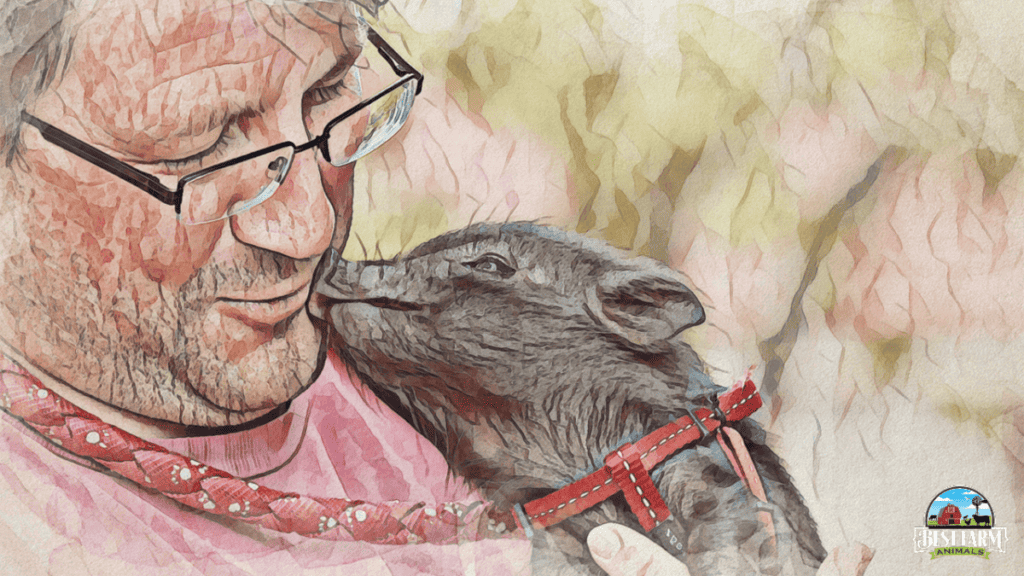The idea of pigs as pets is becoming popular thanks to celebrities such as Paris Hilton. There are some definite advantages to raising a pig as a pet, but there are also several factors that you should be aware of.
Are pet pigs good pets at home?
Pigs can make great pets at home because they are highly social and highly intelligent. A pet pig can live up to 20 years, as long as it’s treated with proper care. Many pet pig breeds enjoy cuddling and being petted but only if they’re comfortable with you. However, pigs can also get easily bored and destructive. Pigs tend to be very domineering. When fully grown, hogs are very heavy and can be difficult to manage.
Still, it’s hard to resist a piglet. Piglets are super cute and adorable. If only they would stay that small.
But they don’t.
This article will explore the many aspects of raising pigs as pets. It will discuss indoor and outdoor pigs as pets. We will discuss different pet pig breeds such as miniature pigs and the issue with teacup pigs. I’ll help you make sure you don’t spend thousands on a teacup pig to a dishonest dealer.
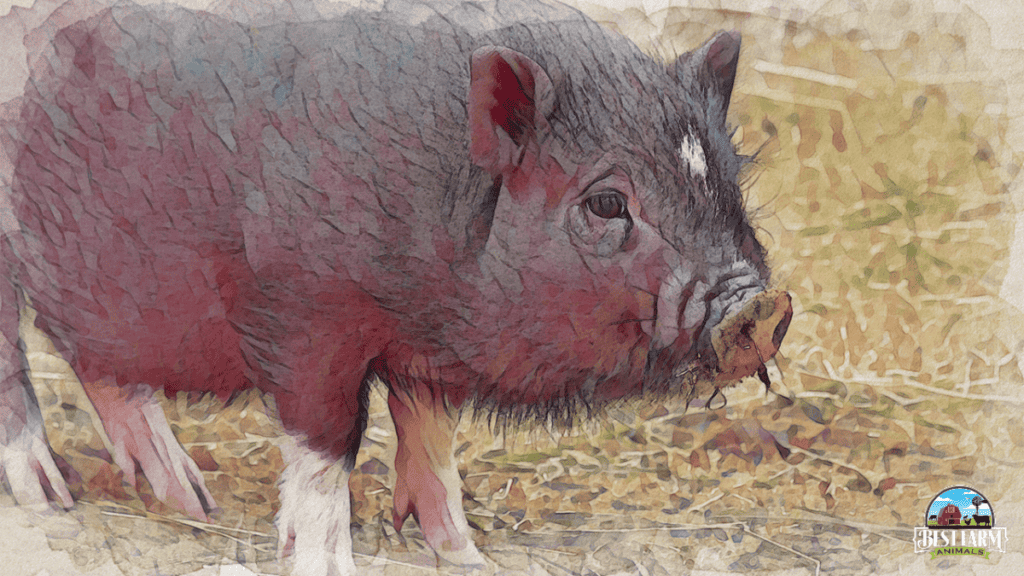
Keeping Pigs As Pets: Can You Keep Pet Pigs Indoors?
Can you keep a pig as an indoor pet? Pet pigs can stay indoors if you want them to. Pigs can be potty trained like a dog, but they have a very strong rooting instinct. Pigs need a nest and a place they can root and nest in. It makes more sense to provide grown hogs a place in a garage or nearby structure than to turn a room in your house into an indoor “barn” for your pet pig.
There are many aspects of owning a pig as a pet that you should consider. There are also many levels of having a pig as a pet. Pigs can be outdoor pets that kids take care of or they can also be indoor pets. Pigs can be farm animals raised for a specific purpose.
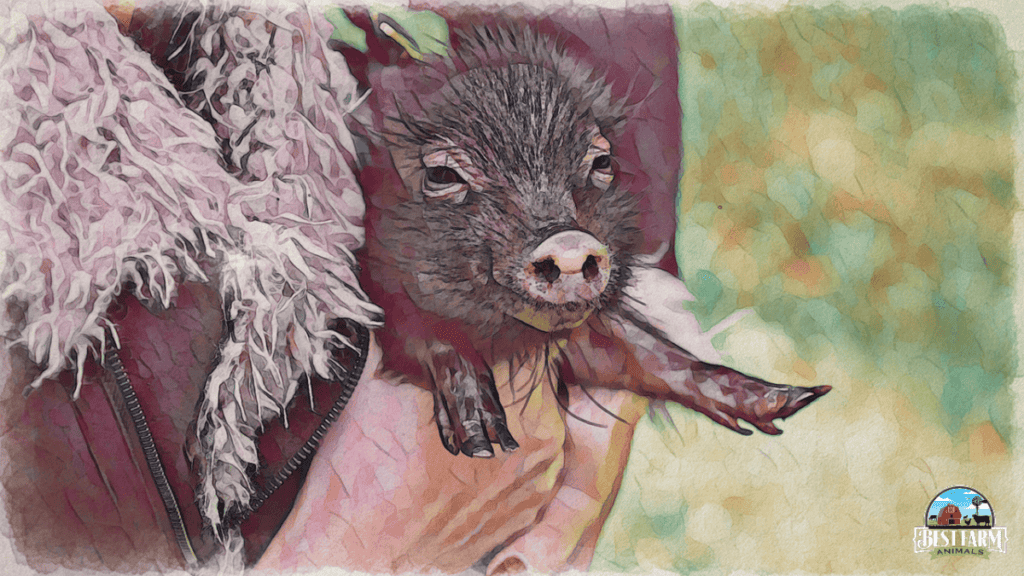
Reasons Pigs Are Great Pets!
As a pig owner myself, I can confidently say that pigs make amazing pets. There are several reasons why I believe pigs are fantastic companions. In fact, you can check out this post that covers the pros of raising pigs in depth. Here’s are just three reasons pigs are great pets:
Pigs Are Very Intelligent!
First and foremost, pigs are incredibly intelligent animals. They possess an impressive level of cognitive ability, often compared to that of a three-year-old child. This intelligence makes them highly trainable and allows them to learn various tricks and commands. It’s truly remarkable to witness their problem-solving skills and adaptability.
Pigs Are Affectionate Pets
Moreover, pigs are known for their affectionate nature. They are naturally social animals and form strong bonds with their human caregivers. Pigs can become loyal and loving pets when properly raised and given love and attention. It’s heartwarming to see how excited they become when I come home or when I spend time with them.
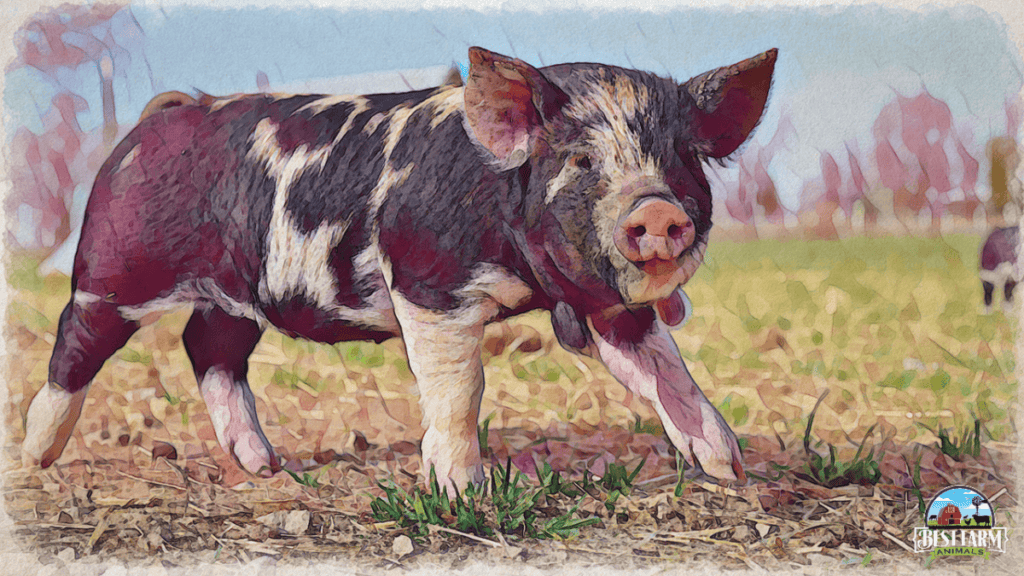
Pigs Are Clean When Possible
Another great aspect of having a pig as a pet is their cleanliness. Contrary to popular belief, pigs are actually quite hygienic animals. They instinctively choose a specific spot to relieve themselves, making potty training relatively easy. With a bit of patience and consistency, you can teach them to use a litter box or even a designated outdoor area. This cleanliness factor definitely adds to the overall convenience of having a pig as a pet.
Cons of Pigs As Pets
Owning a pig as a pet has a few drawbacks worth considering. You can check out our expanded article on the cons of raising pigs as pets here.
Firstly, their size and weight can be a challenge, even with so-called “miniature” pigs. Limited living space may become an issue. Secondly, pigs have specific dietary needs, requiring a balanced diet of fresh produce and high-quality pig feed.
Overfeeding can lead to obesity. Handling and managing pigs can be challenging without proper training and socialization.
Their natural rooting instincts and strength may result in destructive behavior. However, these challenges can be managed effectively with research, preparation, and commitment to training.
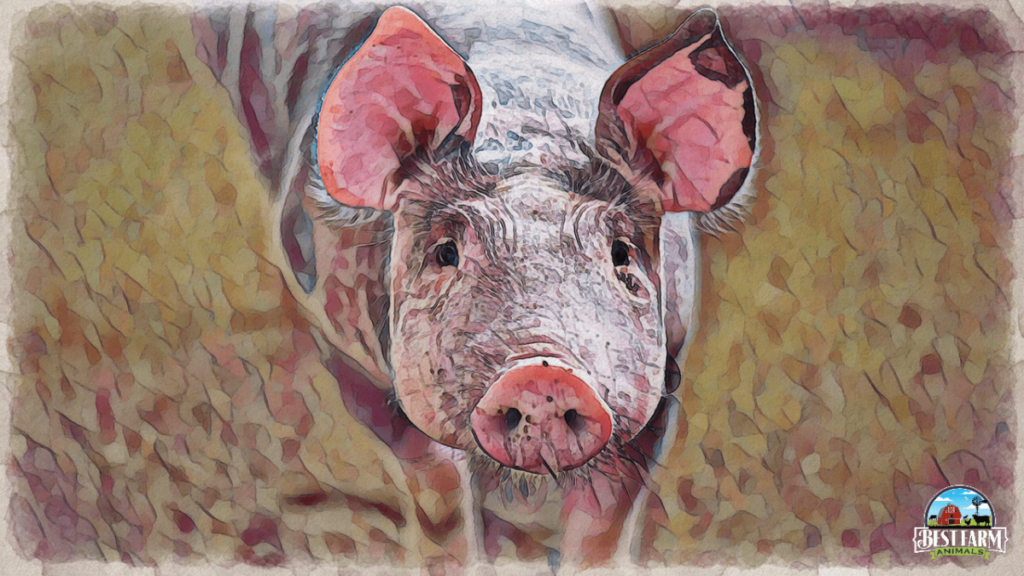
What Do Pet Pigs Require?
Your pigs need shelter to escape the sun, rain, and wind. You can add some bedding to the shelter to make it comfortable. The pigs will also need watering and feeding supplies. You need something sturdy for watering since the pigs like rooting at objects. You can use large troughs or automatic feeders (gravity feeders).
Generally, pigs need:
- Fencing
- Pig Birthing (Farrowing) Supplies like heat lamps
- Pig boards to “herd” pigs to a desired direction or location
- Mucking and cleaning equipment
- Watering device
- Feeding devices plus feeds
- Bedding (straw or wood shavings)/blankets
- Bed
- Pet exercise pen
- Litter pan
- Baby Wipes and Shampoo
- Medical supplies (a first aid kit with antimicrobial spray, a broad-spectrum antibiotic, dewormers for piglets and breeding sows, etc.)
Common Pet Pig Breeds
When it comes to choosing the best pig breed for a pet, popular options include Pot-bellied pigs, Miniature pigs (Teacup pigs), and KuneKune pigs. Check out our full guide to pet pig breeds here.
Pot-bellied pigs are known for their friendly demeanor and intelligence, making them trainable companions. Miniature pigs, bred for their small size, are favored for their adorable appearance and suitability for smaller living spaces.
KuneKune pigs from New Zealand are docile and sociable, with a unique appearance featuring short legs, tassels, and wattles.
Other notable pig breeds for pets include Juliana pigs, American Mini Pigs, and Yucatan pigs. Thorough research and understanding of their specific needs are crucial for a rewarding relationship with any pig breed as a pet.
Overall, whether you choose a Pot-bellied pig, Miniature pig, KuneKune pig, or another popular breed, providing proper care, suitable living conditions, and investing time in training and socialization will ensure a fulfilling companionship with your pig.
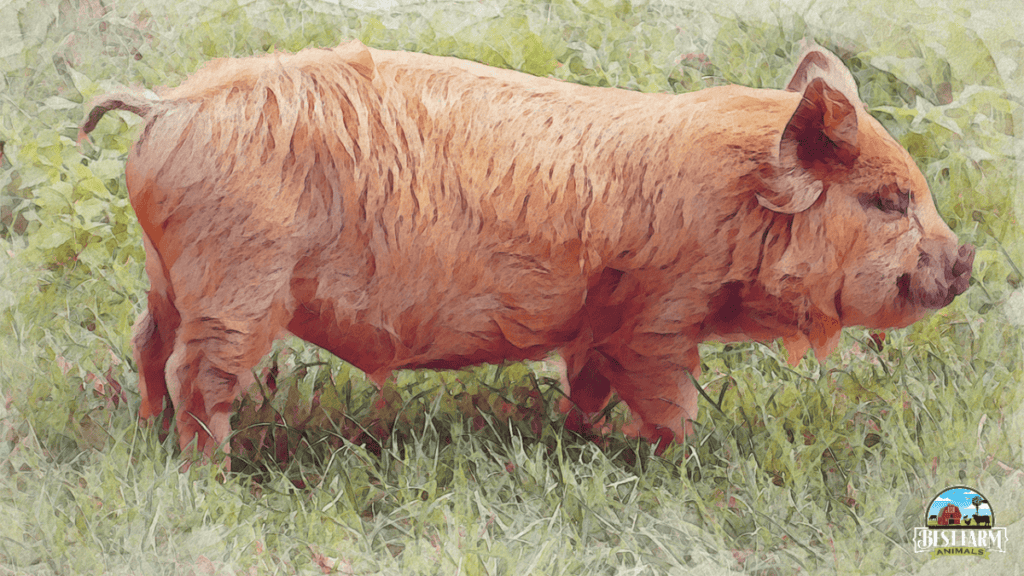
Pig Average Lifespan and Weight by Breed Chart
| Breed | Female Size | Male Size | LifeSpan |
| Potbellied pig | 80-140 lbs | 120-200 lbs | 12-15 years |
| Kunekune Pig | Up to 200 lbs | Up to 250 lbs | 10-15 years |
| Mulefoot Pig | 250-400 lbs | 350-600 lbs | Unknown. Rare, only a few hundred known |
| Ossabaw Island Hog | Under 200 lbs | Under 200 lbs | 15-20 yrs, Rare |
| American Guinea Hog | 150-200 lbs | 200-300 lbs | 10-15 yrs, Very Rare |
| Meishan Pig | 300-400 lbs | 275-375 lbs | 9-15 yrs, Critically endangered |
| Juliana Pig | 50-80 lbs | 50-100 lbs | 12-15 years |
| Yucatan Hairless Pig | 150-200 lbs | 150-200 lbs | 10-15 years |
Other Pet Pig Types
You may run across other pig breeds that are supposed to be very small. I’ve included a list of fake pig breeds that don’t exist and are used only as marketing ploys to sell “tiny pigs.” Each of these types of pig breeds is usually a Kunekune pig or a potbellied pig and not the “breed” you are being sold.
- Teacup pigs
- Toy pigs
- Royal Dandies
- Micro mini pigs
- Dandie Extremes
- American mini pig
If you run across these “breeds” of pigs, know that they aren’t real breeds and take that a red flag the breeder is trying to dishonestly sell a pig under false pretenses.
There are a number of questions to ask the breeder when you are considering a smaller pig as a pet.
- How old are the mom and dad?
- What is the official breed of this pig?
- Has the pig been spayed or neutered?
- Has the pig been dewormed? How long ago?
- Has the pig ever bitten anyone? Under what circumstances?
- How old is the pig?
- At what age was it weaned?
- Is this pig more social or independent?
- Are the parents related?
These questions and the breeders response will tell you a lot. You will be able to gauge if your potential pig is inbred, have health problems, or grow bigger than the breeder is telling you.
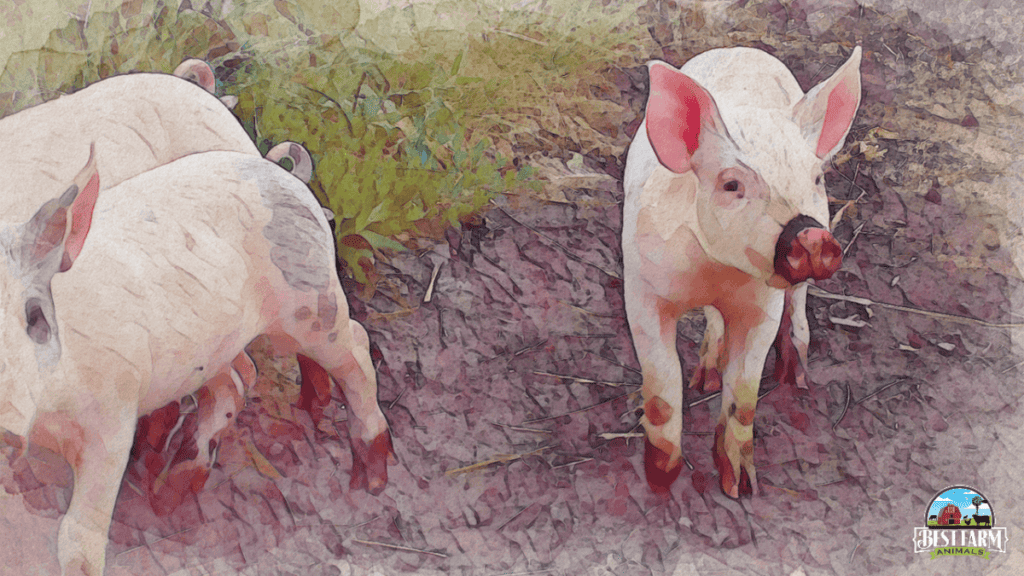
Adopting Pet Pigs
Before you move forward with adopting a pig, think about your current situation and whether or not it is the right time to adopt. Do your research carefully before you commit to being a pig parent.
Check whether or not your neighborhood allows the ownership of pigs, as some residential zones actually prohibit it. Those that do allow it may have a housing requirement or weight limit that must be met in order to own a pig. It is not recommended to adopt a pig if you live in an apartment or another type of rental property.
Pigs are unlike cats or dogs. They require their own special type of care. Make sure you understand their needs and common health problems that can be prevented early on.
Learn about pigs’ behavior. Pigs are considered “prey” animals, meaning that it takes a bit of time and patience to eventually gain their trust. In addition, pigs can also be dominant and can express aggressive behavior if you are unable to assert your dominance over them when they first enter the home.
Research veterinarians in your area. See if any have experience treating pigs, and if so, note which pig breeds they specialize with.
Consider volunteering at a pig sanctuary or rescue group. Get used to caring for pigs before committing to adopting your own.
After your research and planning, if you find that you are definitely prepared to take care of a pig of your own, make sure you visit a reputable breeder or rescue organization to adopt one.
The best pig breeders and rescue organizations will make sure that a piglet is at least six weeks of age before letting it go for adoption. They will also be able to provide information regarding the pig’s current health, food requirements, vaccinations, housing requirements, and more to ensure you are fully aware of the pig’s history and needs.
If you are a first-time pig owner, you may have trouble choosing a pig. Do not worry! Many breeders and rescue organizations are happy to help you find the ideal piggy companion. However, if you are still unsure how to pick the right pig for you, consider these tips:
First-time pig owners should start with a piglet or fairly young adult pig.
Look for pigs that have no signs of ill health. When it comes to physical attributes, a healthy pig will have a shiny coat with a semi-moist snout. A healthy pig’s body will also be long and slightly arched, with its chest wide and the sides a little round. Its legs should be strong and well placed with short and well-maintained hooves.
The pig you choose should show signs of activity and an interest in people.
Make sure the pig you choose does not show early signs of aggression. Pay attention to how it behaves around other pigs and their siblings. If it seems more wild-natured, look for another pig option that is more even-tempered.
There is no doubt that with the right care and training, pigs can be the next best addition to your family!
Pigs As Pets FAQs
Keeping pigs as pets has many advantages. These animals are friendly and easy to care for. Besides, they provide companionship and are not as dirty as most people believe. They are also hardy, meaning you will only spend a little on their medical care. Pet pigs will get along well with other pets and even your children.
Can I Have a Pet Pig Where I Live?
You can keep pigs where you live if the municipality law in the area allows it. You can keep pigs as pets, but there could be restrictions on weight, height, breed, and the number of pigs you can keep based on the size of your property. You must understand the difference between pet animals and livestock per your municipality laws and abide by the requirements.
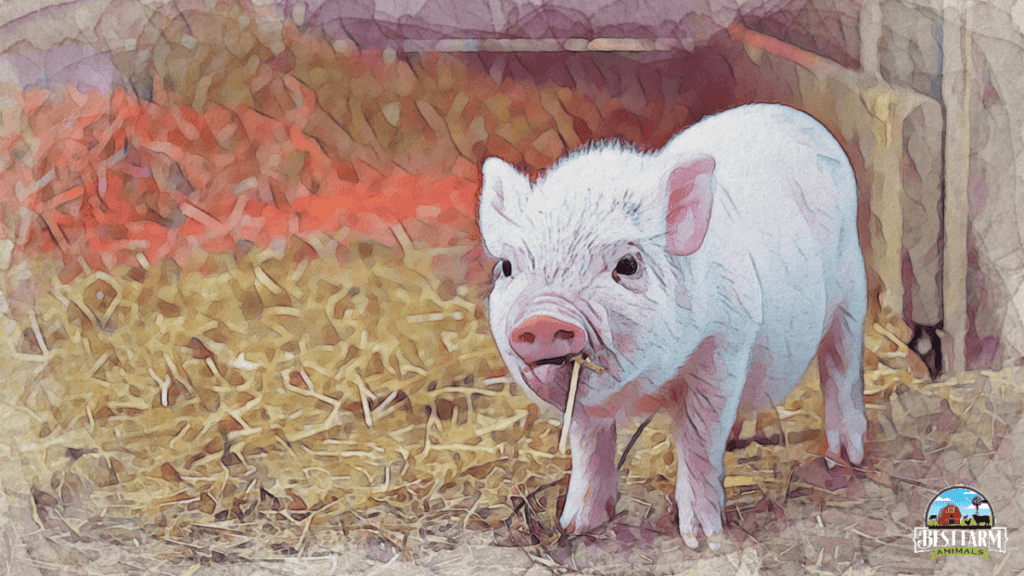
Can You Be Allergic To A Pet Pig?
Pigs can cause allergies in some people. Their hair, saliva, and urine can cause allergic reactions. Additionally, since pigs like rolling in mud/dirt, they can carry allergens on their bodies. When you keep pigs as pets, the allergens can remain on your clothes or hair for a long time, worsening your situation even if you are no longer close to the pig.
Do Pigs Make Better Pets Than Dogs?
Pigs make better pets than dogs. They are intelligent, sensitive, friendly, and playful. Pigs are smarter than dogs and are almost as social as primates. They are trainable and can play ball. Pennsylvania State University’s Dr. Stanley Curtis discovered that pigs can play joystick-controlled video games. Music can soothe them, and they enjoy massages just like humans.
Conclusion
Pigs are great animals to keep as pets. They are friendly, smart, intelligent, and trainable. Additionally, they are trainable. You can enjoy playing games with your pigs once you train them. Contrary to common belief, pigs are very clean and will be almost odorless if you regularly clean them. A healthy and well-fed pig can be a great companion.
My Most Used Pig Supplies
This list contains affiliate products. Affiliate products do not cost more but helps to support BestFarmAnimals and our goal to provide farm animal owners with accurate and helpful information.
Purina Pig Chow will last well (or Mazuri is popular, but I haven’t tried it), and the stainless steel non-skid bowls that will help keep the mess down.
A pig blanket to keep her warm. This one also has bright colors and helps to provide rooting without the destruction.
Pig Harness for walking and handling your pig. There are a lot to choose from, but this one is pretty easy to use. If you want one that has a separate leash, this looks like a good one.
A large crate for keeping her safe in your house at night and when you leave the house. This is essential. You’ll also want a litterbox, and I like mine with a lid for nighttime. Pine shavings are best, and you may be able to find them in larger quantities locally.
When you have accidents, Odoban will help eliminate odors. When you are potty training, these floor pads work great for keeping your house clean while training her to go in certain places.
You’ll also want an outdoor house to keep her warm when she gets outside time, an essential part of her development.
Dewormer- Ivermectin is the primary dewormer I use, although I do rotate with a non-ivermect ingredient once so that the worms don’t get immune to it.
Additional Resources
If you’d like to read some additional stories on having a pet pig, check out these two articles.

